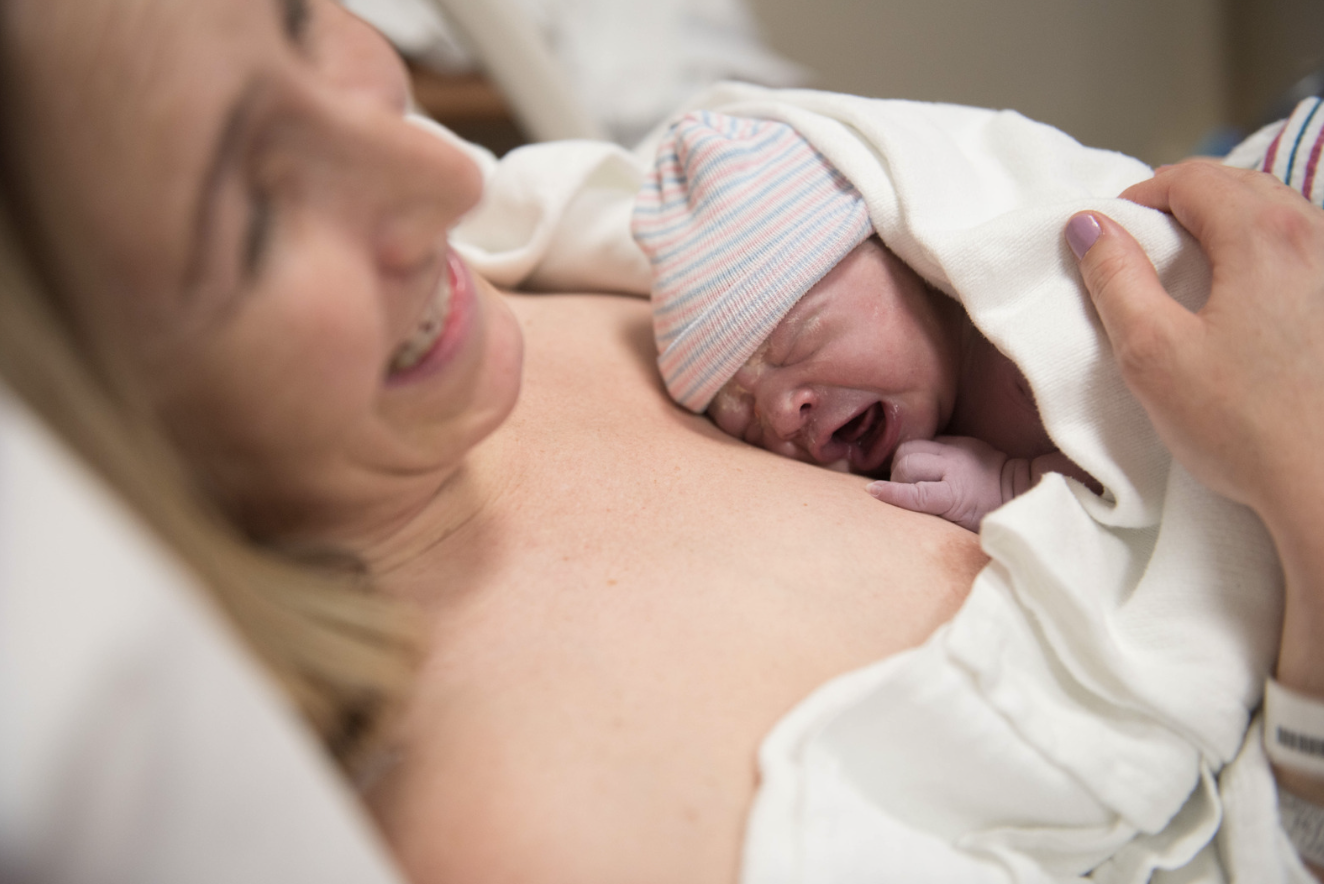Kirsten Fisch, MSN, RNC-MNN, IBCLC, LCCE Kirsten is a women's health nurse who specializes in high-risk pregnancy and postpartum care. She is certified in Maternal Newborn Nursing, a board-certified lactation consultant (IBCLC), and a Lamaze-certified childbirth Educator. She works with women from conception through postpartum. Passionate about empowering women during their reproductive journeys, Kirsten combines evidence-based care with compassionate support to promote health and well-being for mothers and babies.
For many women, the decision to have a child later in life is influenced by career goals, financial stability, or personal circumstances. While advances in medicine have made it safer than ever for women over 35 to have healthy pregnancies and births, there are still risks associated with later-in-life childbirth that expecting mothers should be aware of.
1. Increased Risk of Pregnancy Complications
As women age, the likelihood of developing pregnancy-related complications rises. Some common concerns include:
- Gestational diabetes – Older mothers are at a higher risk of developing this condition, which can lead to excessive fetal growth, complications during delivery, and increased risk of type 2 diabetes later in life.
- Preeclampsia – This condition, characterized by high blood pressure and signs of organ damage, is more common in women over 35 and can be dangerous for both mother and baby if not managed properly.
- Placental issues – Problems such as placenta previa (where the placenta covers the cervix) and placental abruption (where the placenta detaches prematurely) are more frequent in older pregnancies.
2. Higher Chances of Chromosomal Abnormalities
As a woman ages, the quality of her eggs declines, increasing the risk of chromosomal abnormalities like Down syndrome. Women over 35 are often offered genetic screening tests to assess the likelihood of such conditions early in pregnancy.
3. Increased Likelihood of Preterm Birth and Low Birth Weight
Babies born to mothers over 35 have a higher risk of being born prematurely or with low birth weight. These babies may face short- and long-term health challenges, including respiratory distress and developmental delays.
4. Greater Need for Interventions During Labor
Older mothers are more likely to experience labor complications, leading to an increased need for medical interventions such as:
- Induction of labor – Due to higher risks of stillbirth, doctors may recommend inducing labor before the due date.
- Cesarean section (C-section) – Women over 35 have a higher rate of C-sections due to labor difficulties, fetal distress, or underlying health conditions.
5. Maternal Health Concerns
Older mothers may already have pre-existing health conditions such as hypertension or diabetes, which can complicate pregnancy and postpartum recovery. Additionally, postpartum hemorrhage (excessive bleeding after birth) is more common in women over 35.
How to Minimize Risks
Despite these challenges, many women over 35 have smooth pregnancies and healthy babies. Steps to reduce risks include:
- Preconception care – A health check-up before pregnancy can help manage pre-existing conditions.
- Healthy lifestyle choices – Eating a balanced diet, exercising regularly, and avoiding smoking or alcohol can improve pregnancy outcomes.
- Regular prenatal care – Frequent monitoring helps detect and manage complications early.
- Considering specialist care – Working with an obstetrician specializing in high-risk pregnancies can provide additional support.

While age can introduce additional risks, it does not mean a woman cannot have a safe and healthy pregnancy. With proper medical care and lifestyle adjustments, many women over 35 successfully carry and deliver healthy babies. If you’re considering pregnancy later in life, consulting with a healthcare provider early can help you prepare for a smooth journey to motherhood.

Kirsten Fisch, MSN, RNC-MNN, IBCLC, LCCE Kirsten is a women's health nurse who specializes in high-risk pregnancy and postpartum care. She is certified in Maternal Newborn Nursing, a board-certified lactation consultant (IBCLC), and a Lamaze-certified childbirth Educator. She works with women from conception through postpartum. Passionate about empowering women during their reproductive journeys, Kirsten combines evidence-based care with compassionate support to promote health and well-being for mothers and babies.



